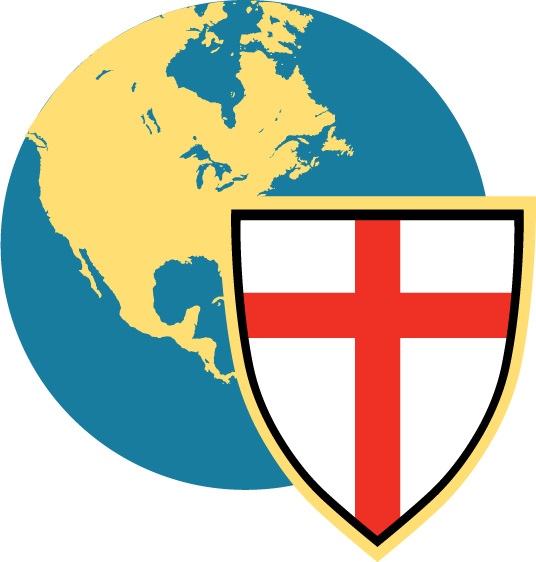A Letter from Bishop Chris (September 2023B)
Dear friends,
I have two things that are uppermost in my mind as I write to you today. The first has to do with an emerging sense of vision that I’m seeing for our diocese and our churches. The second is related to the book of Revelation and Hispanic Heritage month.
Related to vision, I recently led my first Warden’s Day (an annual gathering of Junior and Senior Wardens from across our diocese which met at All Saints Woodbridge), as well as my first Clergy Day (an annual gathering of priests and deacons which met at Truro Anglican in Fairfax). It was amazing to be with both groups - we have such capable lay and clergy leaders in DOMA! You can see pictures of the events here.
At these two events I discussed my sense of God’s “outward” call to our churches. I spoke about the fact that churches tend to become inwardly focused whether through the “Up” of worship or through the “In” of programs/discipleship, and that it’s easy to miss, forget or avoid doing the “Out” of evangelism.
Using the visual of the church as an UP/IN/OUT triangle (hat tip to Rev. Mike Breen), I discussed the importance of all three components of a church’s ministry. What I emphasized was not the “Up” (our worship services) which most of our churches do well. Instead, we discussed the need to clarify the “In” (discipleship) and to actually do the “Out” (evangelism).
I believe the In and the Out are inextricably linked in the Great Commission (Go and make disciples…) so that a church which isn’t outwardly focused shows that it isn’t adequately making disciples. Discipleship, despite what many believe, is more than worship attendance (Up) and it’s more than learning the Bible or theology (In) as important as these things are. Discipleship must move toward outsiders to bring Good News, enact creative goodness for the sake of the world, and offer the hope of eternal life in Jesus Christ. If we neglect the “Out,” we forsake the very purpose for which Christ called us and commissioned us (Matthew 29:18-20). As Archbishop William Temple said, “The Church is the only society on earth that exists primarily for the benefit of those who are not its members.” We’ll be talking more about this outward orientation, specifically through evangelism, in the years to come.
The second thing on my mind is the book of Revelation and Hispanic Heritage month. Revelation 7:9-10 says:
After this I looked, and behold, a great multitude that no one could number, from every nation, from all tribes and peoples and languages, standing before the throne and before the Lamb, clothed in white robes, with palm branches in their hands, and crying out with a loud voice, “Salvation belongs to our God who sits on the throne, and to the Lamb!”
The book of Revelation shows the incredible diversity and unity of God’s people worshiping him together. This end-time picture stirs my heart to know my brothers and sisters in Christ who are from other cultures and races with whom I will one day share in the eternal bliss of the marriage supper of the Lamb. I am confident that many of our Hispanic “siblings” will be among those before Christ’s throne.
I want to encourage you to learn more about our brothers and sisters in Christ from Hispanic cultures. It’s estimated that there are 60.6 million Hispanic people in the US, and according to Pew Research, they are the country’s second largest racial or ethnic group, behind white non-Hispanics.
Hispanic Heritage month lasts from September 15 through October 15 and celebrates the heritage and culture of the Hispanic community. The timeframe for the month-long observation encompasses the anniversaries of independence for many Hispanic countries including Costa Rica, El Salvador, Guatemala, Honduras, Nicaragua, Mexico and Chile. Contained within the month is “El Día de la Raza,” or “The day of the Race,” on October 12. This day is celebrated throughout Mexico and Latin America and recognizes the different cultures, traditions, and languages interwoven in the history of Mexico, Central America, and South America. These races include Native Americans, such as the Mayas, Aztecs, and Incas; and European nationalities, such as Spanish, Portuguese, and French.
If DOMA is to continue growing into a multi-ethnic representation of the people of God like what we will experience in eternity, it’s important that we celebrate and learn from and about one another. As part of my own growth, I’m currently reading the following book which might benefit you also:
Mañana: Christian Theology from a Hispanic Perspective by Justo L. Gonzalez
Blessings,
+Chris

